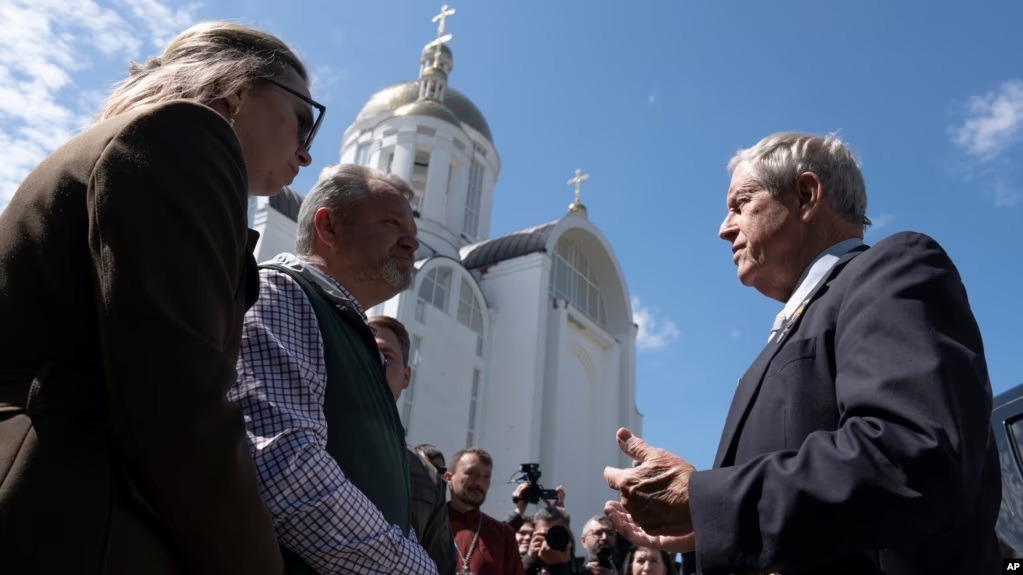WASHINGTON — The United States must prepare for a “long-term” confrontation with Russia that won’t end when authoritarian President Vladimir Putin departs from the political scene, according to a new report by a bipartisan commission.
Thank you for reading this post, don't forget to subscribe!Ukraine’s defeat of Russia on the battlefield is critical to winning that confrontation, and Washington should do all it can to ensure Kyiv is victorious, the U.S. Helsinki Commission stated in its September 30 report.
The commission, which was set up in 1975 to monitor human rights in the Soviet bloc, is composed of 18 lawmakers evenly split between the House of Representatives and Senate as well as three representatives of the executive branch.
“There will be no hope for a peaceful and stable Russia while it remains engaged in war and occupation of its neighbors,” the commission said in the report.
“Ukraine defeating the Russian invaders is a necessary, but not sufficient, step towards not only forcing Russia into significant reflection and reform, but also towards uprooting Russian influence and countering Russian aggression more broadly.”
The commission’s report comes as the future of U.S. military support for Kyiv in its nearly three-year defensive war against Russia is uncertain with a wing of the Republican party, led by presidential candidate Donald Trump, questioning the significant financial commitment.
Congress has allocated $175 billion to support Ukraine since Russia invaded in February 2022, with the majority of the funding spent at home for weapons production and other goods and services. Ukraine would need another large U.S. aid package early next year if it hopes to drive Russian forces from its territory.
Trump, who claims to have a good relationship with Putin, has said he will quickly negotiate an end to the war if elected president. With Russia controlling nearly 20 percent of Ukrainian territory, any deal now would likely force Kyiv to make territorial concessions. And without a U.S. or NATO security guarantee, there would be no assurance that Putin wouldn’t invade again.
Vice President Kamala Harris, the Democratic candidate, backs aid to Ukraine but it is unclear how much further she is willing to go than her current boss, President Joe Biden. His administration has been criticized by Ukrainian supporters for slow-rolling military aid to Kyiv, giving it enough to survive but not enough to win.
Ukrainian President Volodymyr Zelenskiy traveled to the White House last week to present his “victory plan” to Biden and request permission to strike military targets deep inside Russia with U.S. missiles. The White House did not announce any change in policy following the meeting.
The bipartisan report, led by Helsinki Commission Chairman Joe Wilson (Republican-South Carolina), can be seen as an exhortation for whichever party wins the presidency and controls the House of Representatives and Senate next year to continue aid.
Wilson is among those Republicans, including Senators Jim Risch of Idaho and Mitch McConnell of Kentucky, who are ardent Ukraine supporters.
Putin, who has been Russia’s preeminent leader for nearly a quarter century, has tried to justify his invasion by claiming that Ukraine has historically belonged to Russia. At the same time, he is attempting to rebuild the Kremlin’s sphere of influence in the former Soviet space. He has installed people in power in Russia that share his view to ensure his policies continue beyond his time in office.
“Until Russia can reckon with its imperial history and present, cease using repression and corruption as tools of power, and build governing institutions that are grounded in respect for democracy, human rights, and the rule of law, Russia cannot be a responsible international actor. We need to be prepared to contest Russia for the long term,” the Helsinki report said.





